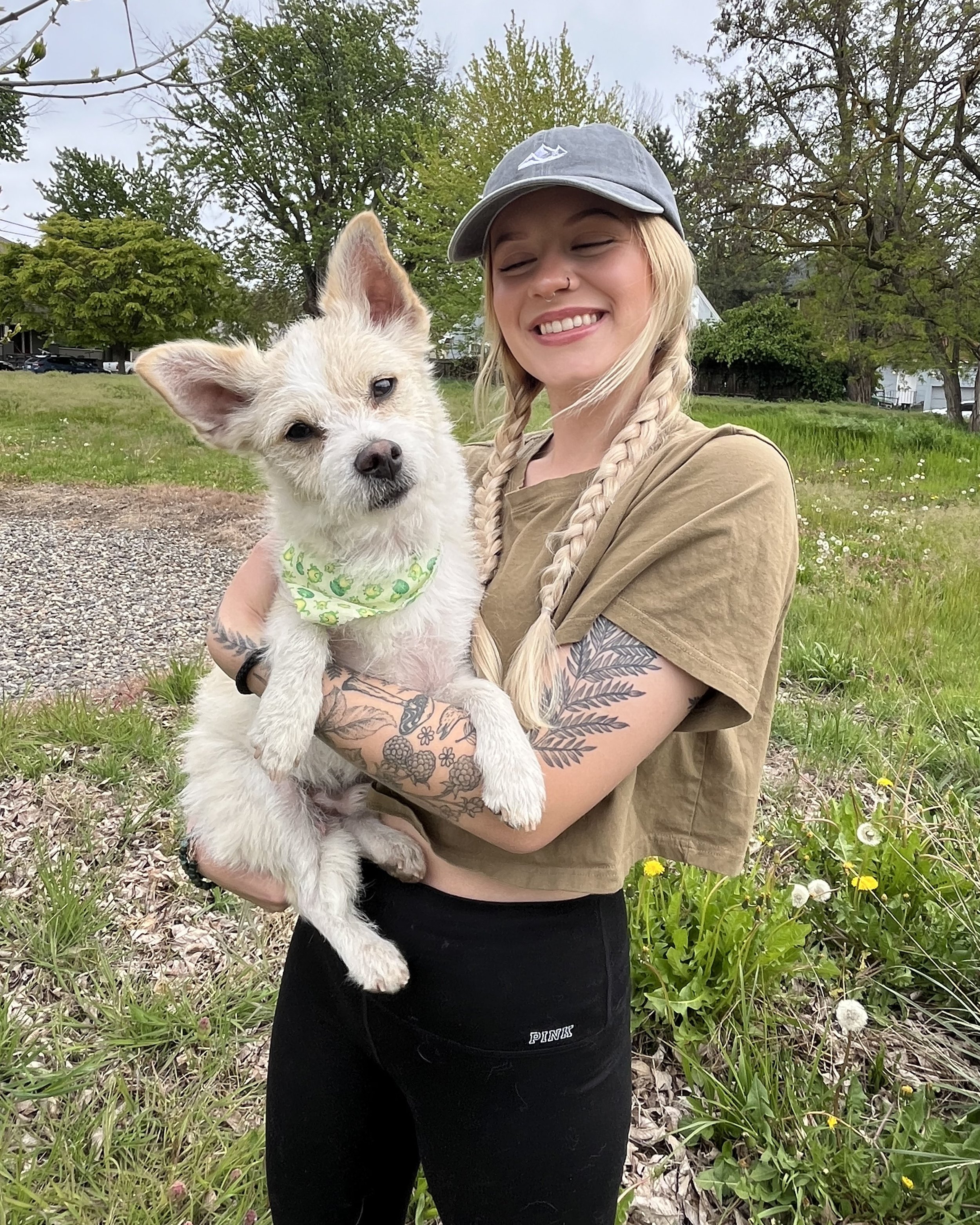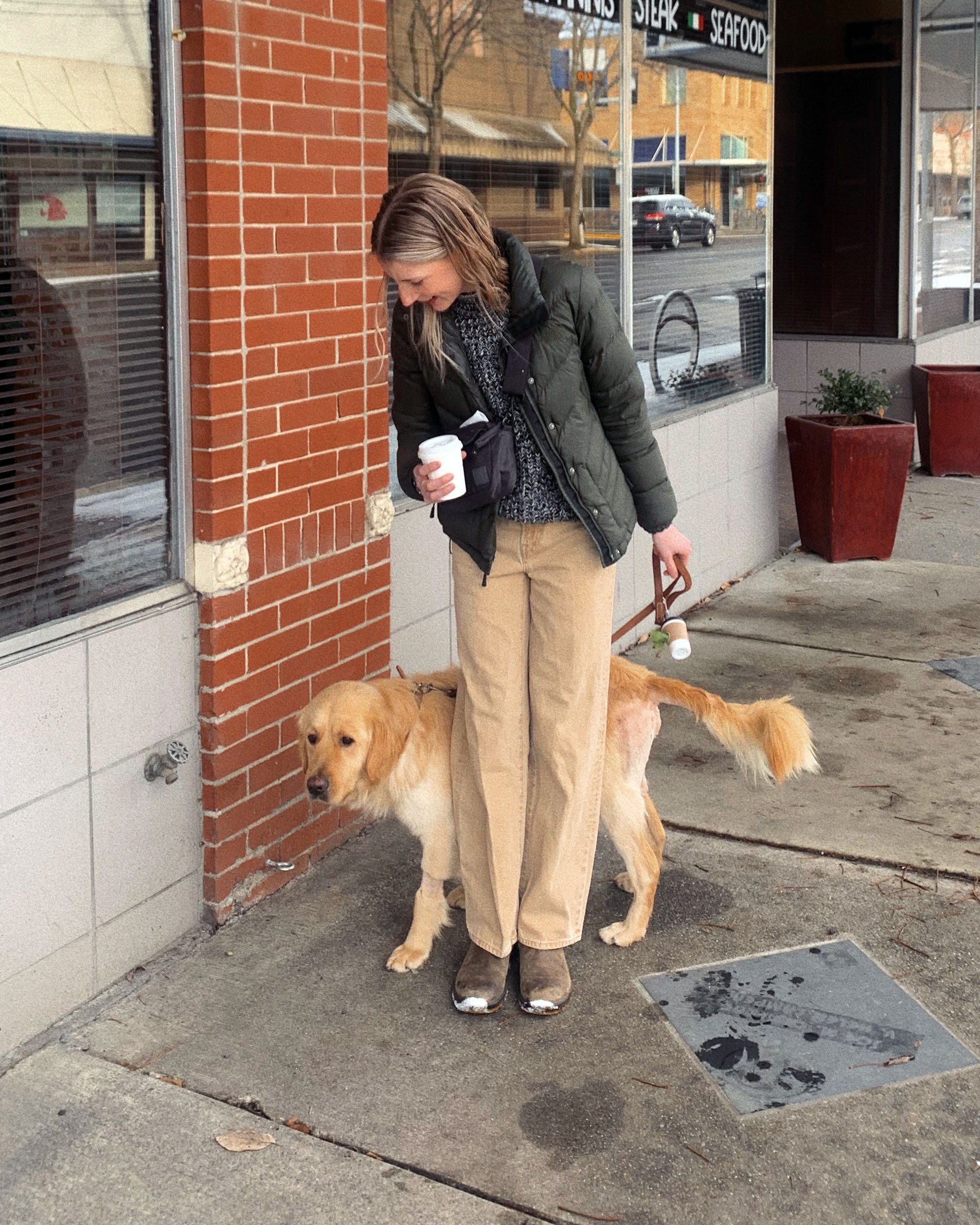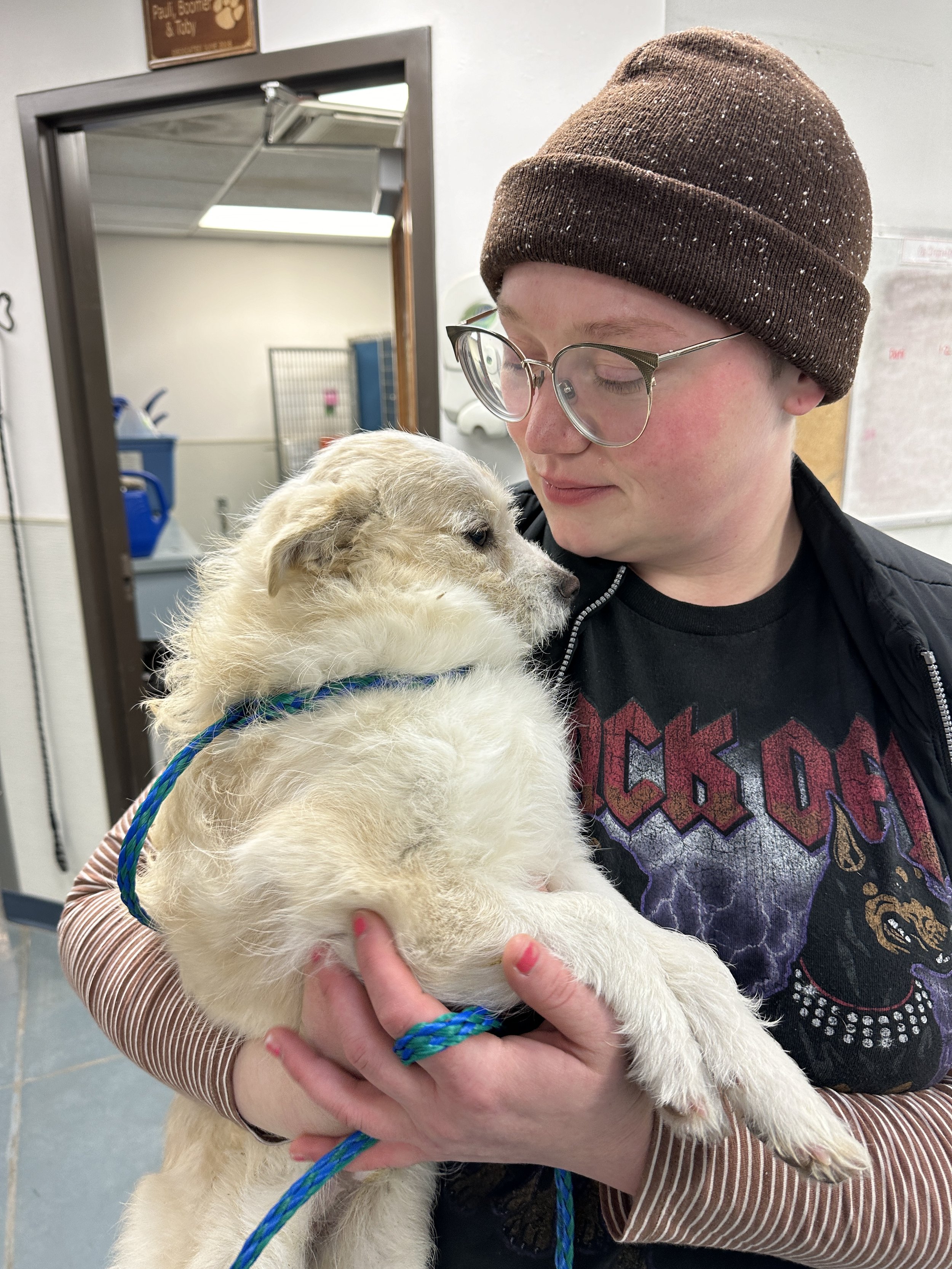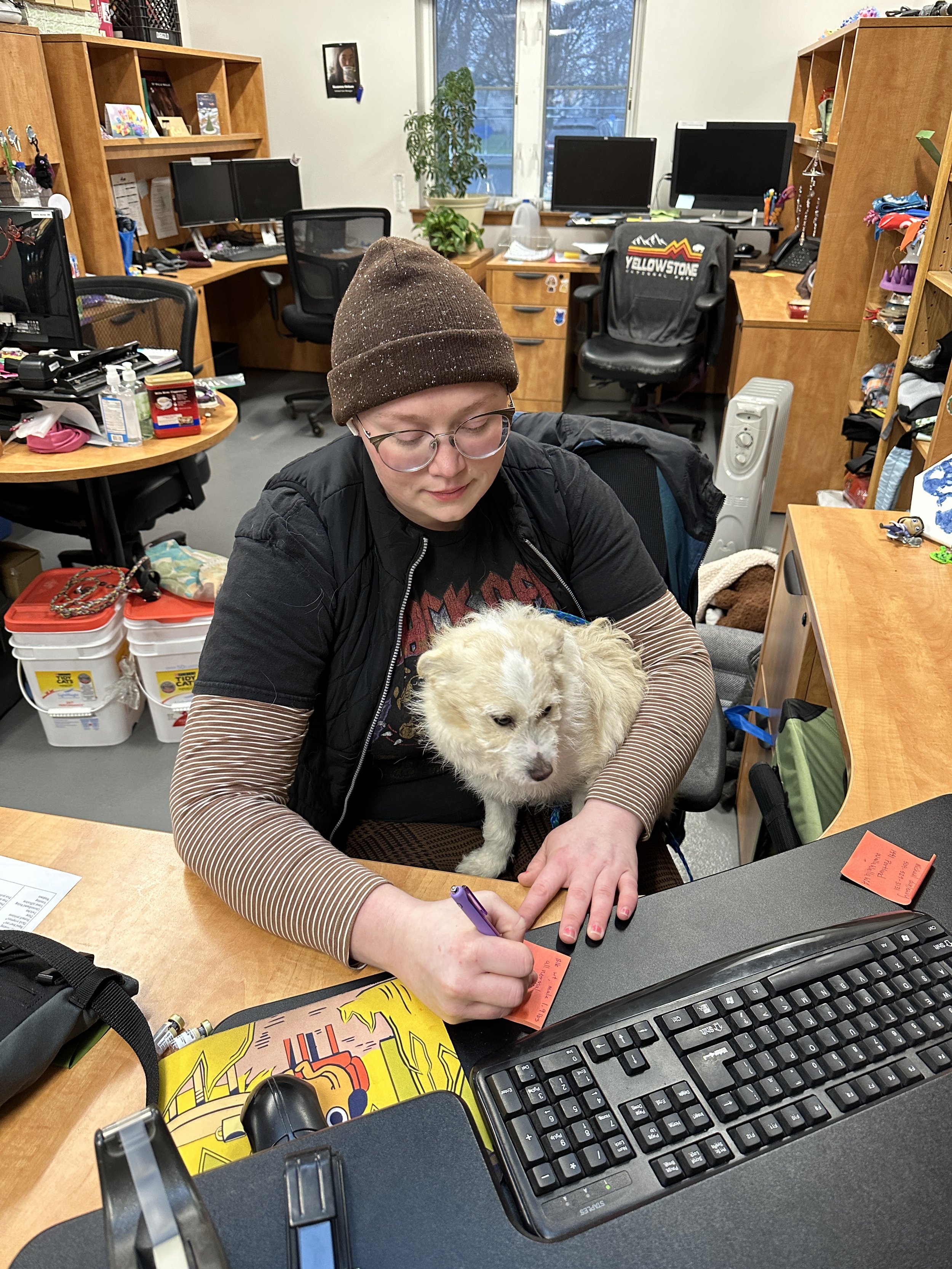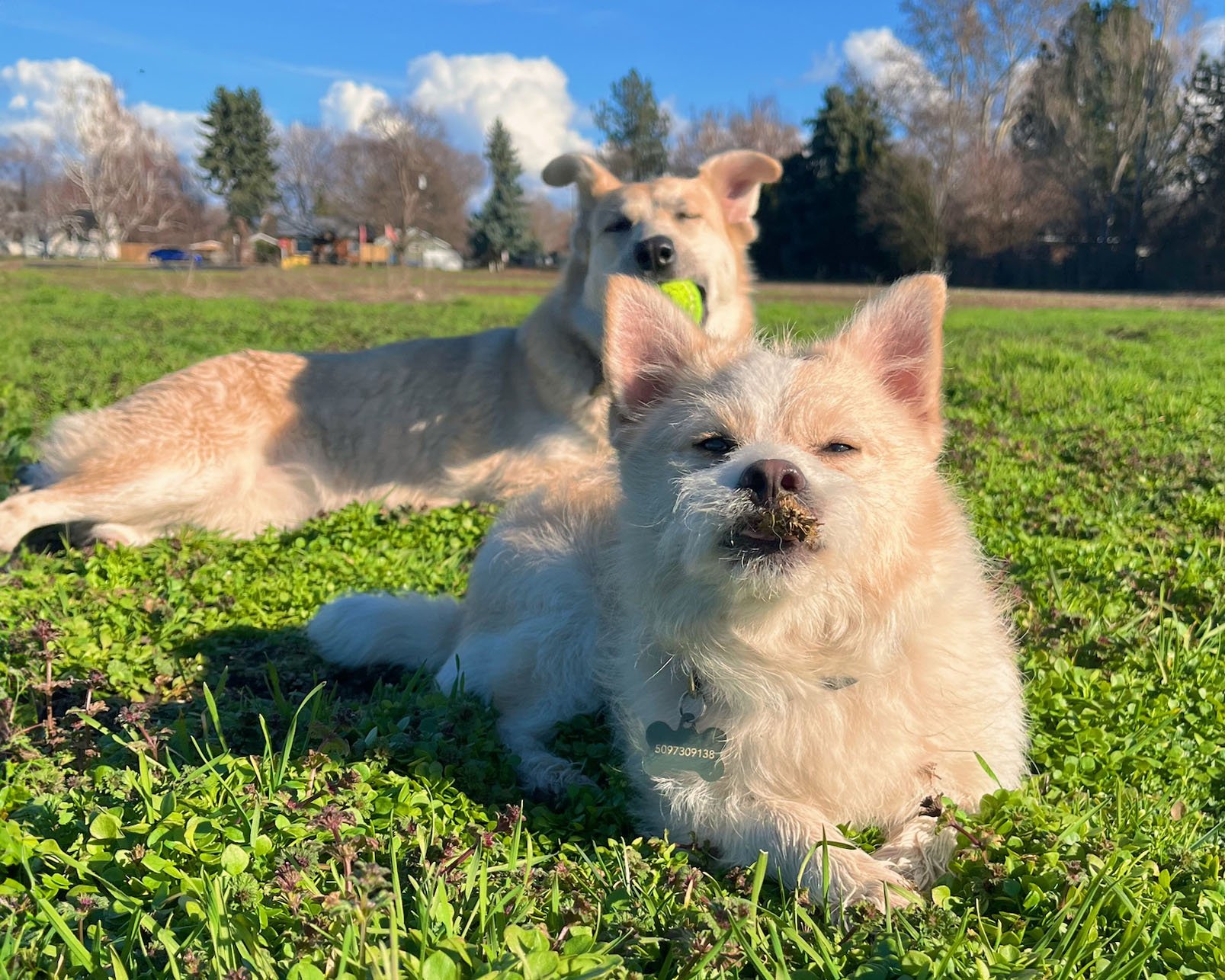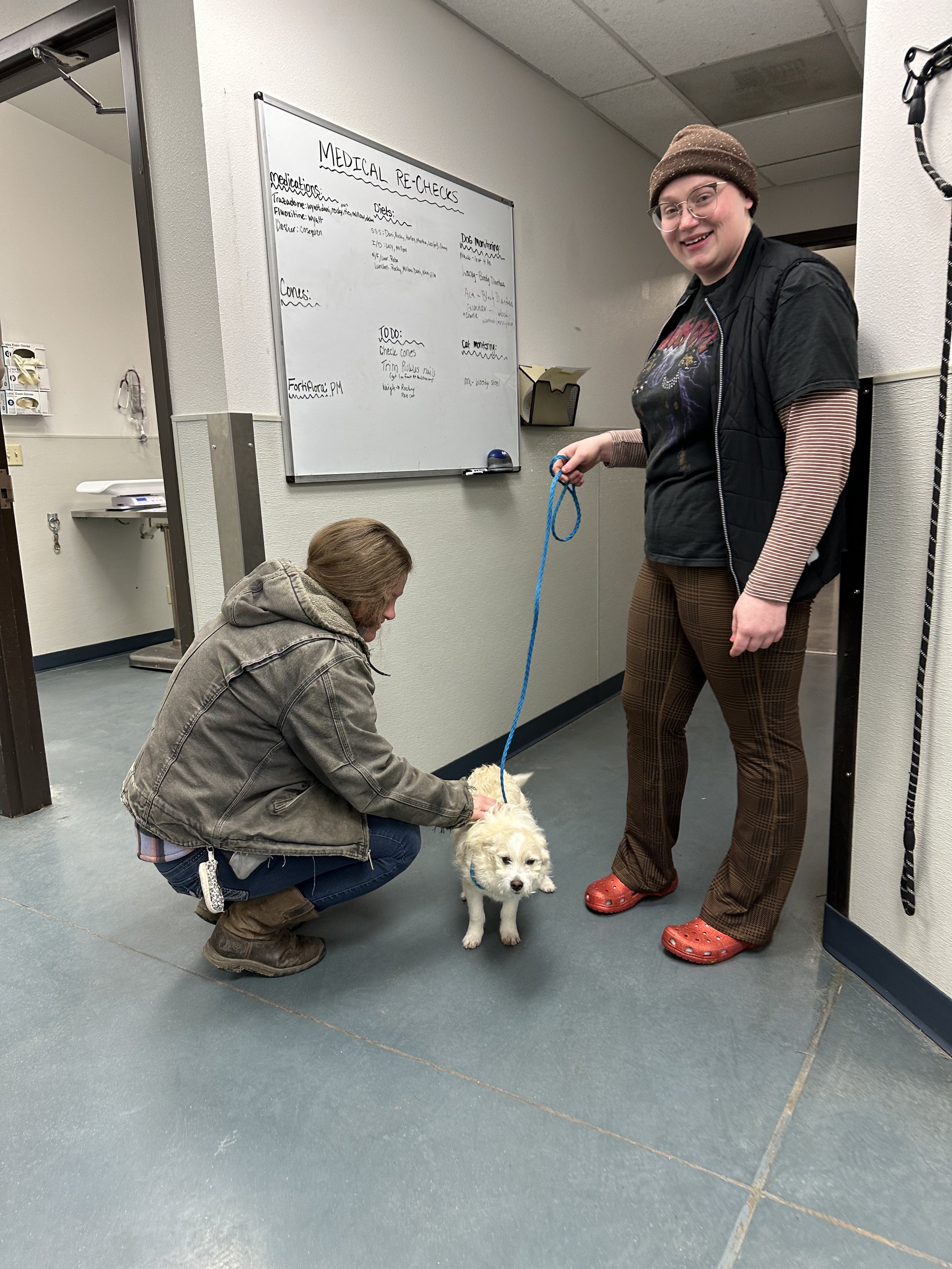Badger and Gilligan
By Animal Care and Petco Coordinator Danae Myers
Badger, a Jack Russell mix, and Gilligan, a golden retriever, were brought into Blue Mountain Humane Society together as strays from Touchet. While shelter employees do their best each day to provide dogs with the care they need to stay healthy, sometimes the stress of being in a noisy, unfamiliar place can cause dogs to feel, well, not themselves. When Badger and Gilligan began to have diarrhea and act lethargic, refusing to eat even the most tempting offerings of chicken breast or jerky treats, everyone’s initial thought was that something like stress or parasites were causing them to feel sick. After a few days had passed and their conditions worsened, staff knew something more serious was affecting this sweet pair.
Badger with Baylie Steele.
Baylie Steele, an Animal Care Coordinator at BMHS and veterinary technician student at Penn Foster, had been looking for a new companion to join her family and hadn’t found the perfect fit. When Badger came into the shelter, she knew without a doubt that he was the one she’d been waiting for. When Badger’s health continued to decline, Baylie was worried that she might lose him before ever being able to take him home.
Gilligan with Emily Tucker.
Emily Tucker, a veterinary student at Washington State University and former employee at BMHS, was working in the BMHS clinic over Christmas break and was interested in taking Gilligan home from the moment she met him. She, like BMHS vet Dr. Ashley Rice, believed that Gilligan’s gastrointestinal symptoms must be a result of something like a heavy parasite load. When he continued to decline, Emily took him to Pullman, where he spent three nights at WSU undergoing diagnostic tests. Just as things were beginning to feel hopeless, a resident doctor working in the intensive care unit of the veterinary school suggested a full abdominal ultrasound. A sample was sent to the clinical pathology lab, and a bacteria called Neorickettsia helminthoeca was found — both Gilligan and Badger were subsequently diagnosed with salmon poisoning disease, or SPD.
SPD is a rare and often fatal disease and is most common in the Pacific Northwest. The disease is spread by dogs eating raw salmon and ingesting a parasitic worm called Nanophyetus salmincola, which lodges in the salmon’s kidneys and muscle. This parasitic worm often carries the Neorickettsia helminthoeca bacteria and will enter the dog’s bloodstream through damaged intestinal wall. After five to seven days, the dog will start to show clinical signs, and the disease can be fatal within seven to 10 days without treatment.
The diagnosis was the best-case scenario for this pair of salmon-snatching pups, because even though the disease is often fatal, once diagnosed, the treatment is a fairly straightforword — supportive care and two weeks of antibiotics.
After recovering at home, Badger and Gilligan are living their best lives. Badger’s two favorite things, besides playing with his mom and doggy-sister Ginger, are people and food. Naturally, it follows that his favorite activity is going to drive-thrus. In his downtime, he’s learned that couches and beds are far superior to the floor if you need a nap or a cuddle. Gilligan lives with his mom, Emily, and like most golden retrievers is full of light and love. He gets along great with everybody he meets, human or otherwise, and his hobbies include chewing on slippers, receiving cuddles and belly rubs, and going on walks to the coffee shop.
It’s scary to think of the alternative ending this story could have had. Thanks to the dedication of everyone involved at BMHS and WSU, Badger and Gilligan can live out the lives that every animal deserves.

